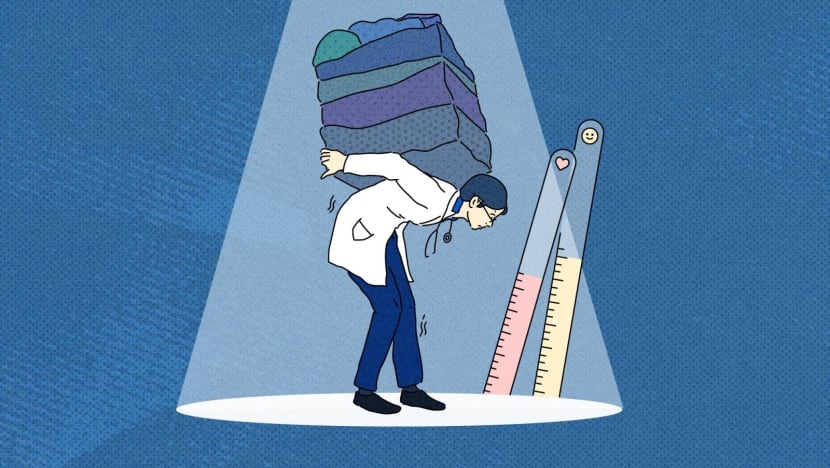Exposure to high stress at our jobs can harm us in the long run. How do we handle the pressure?
Health experts warned that the long-term effects of being in a high-pressure job can be devastating, reducing our ability to regulate emotions and make decisions, for instance.


This audio is generated by an AI tool.
In an aeroplane with limited resources, sick patients and worried family members thousands of metres above the ocean, stress is all too common for Dr Charles Johnson, an emergency medicine physician.
While he has since adapted to the pressure and irregular hours after becoming a doctor more than 30 years ago, the 56-year-old told CNA TODAY that it took him over a decade to get used to the high amount of stress associated with his job.
“When the patient is critically ill, we're working under time pressure with limited resources on the plane,” he said.
“You can't go to the nearest hospital because you're in a plane in the middle of the ocean ... and there are things you can't control like bad weather and turbulence. But I just trust myself that in the moment, I do the right thing and the best I can."
Although individuals such as Dr Johnson eventually find a way to function efficiently and more comfortably in such environments, health experts told CNA TODAY that constant exposure to high-stress environments can be harmful, leaving a lasting impact on mental health and decision-making capabilities.
LITTLE MARGIN FOR ERROR
High-pressure jobs often have tight timelines and place great pressure on people to do everything perfectly because mistakes can have dire consequences.












